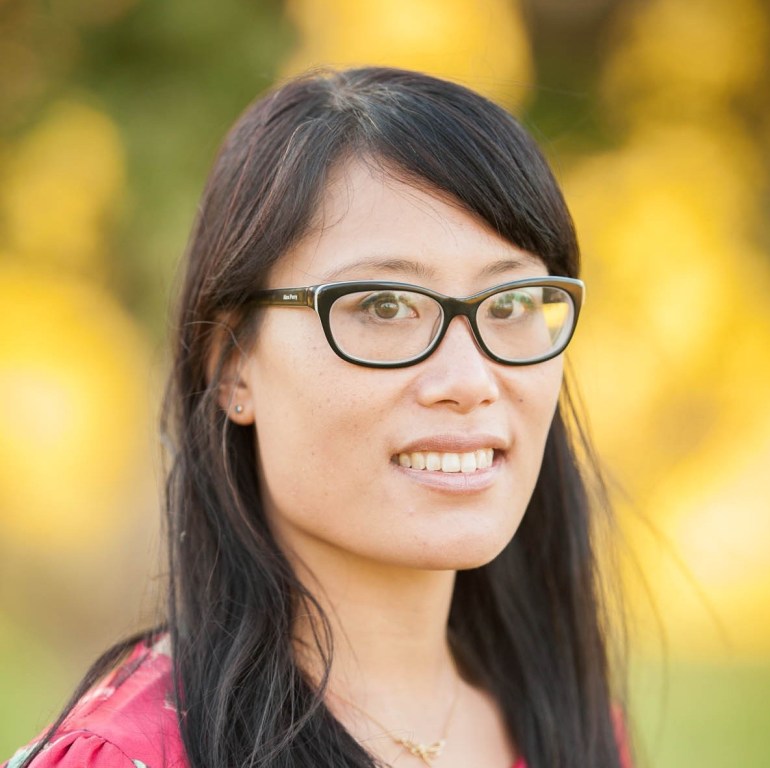Melissa Lee Speyer (Photo credit: Darwin Morales).
Emerging screenwriter Melissa Lee Speyer is gratified by the advances in screen diversity in the past three years but worries that progress has been exaggerated and there is still a significant imbalance.
Born in the UK to Chinese-Malaysian parents, Speyer sometimes finds she is the only non-white writer in writers rooms.
“For every diverse show loudly championed there are a dozen more with representation issues that nobody notices,” she tells IF.
“I know it feels like all the money and opportunities are going in a very specific direction. Trust me, that’s not where 100 per cent of it is going. It’s often just talked about the loudest.
“In the last three years there’s been a lot of loud mainstream talk about diversity, coming off the back of 50 years of virtual silence.
“It’s not just about ‘not being the only non-white writer in the room,’ although that’s definitely important, because the world isn’t only white. It’s about the quality of the representation, in all aspects of the work.
“I’m not saying that white writers can never write people of colour – sometimes they can. But it’s a responsibility, owed to and earned from that group, not an automatic, unfettered right.”
Speyer, who came to Australia as a child, worked as a corporate lawyer until she quit to pursue the far less lucrative career of a freelance writer.
After graduating from NIDA with a degree in playwriting in 2011 she worked as an artistic associate with a theatre company and penned several plays.
She switched her focus to TV after winning the inaugural $20,000 Foxtel Diversity Screenwriting Scholarship in 2017, which enabled her to do her Masters in Arts Screenwriting at AFTRS.
During an attachment to Foxtel she sat in on the writers room on season 5 of A Place To Call Home and attended script development meetings and the first, full-cast table read of the pilot.
“Bevan Lee made a particular effort to pass on craft advice and I got the benefit of hearing people like Penny Win and Carly Heaton give notes,” she says.
“Penny and Carly have championed me as a writer, the attachments I did were next level and the money made it possible for me to study at AFTRS.”
She is also grateful to Ambience Entertainment executive producer Monica O’Brien and development exec Keaton Stewart for giving her a series writer role on two kids shows, forReal! and season 2 of Random and Whacky, both for 10 Peach, before she graduated.
Her big breakthrough came when The Heights co-creators Warren Clarke and Que Minh Luu hired her to write an episode of the Matchbox Pictures/For Pete’s Sake Productions’ ABC-TV drama serial.
“The Heights was a wonderful show to get my first credit on,” she says. “Authentic inclusivity permeated every aspect of that show – from story to casting to crewing and production.
“It was such an ambitious venture – so many writers, a huge cast, a huge first-season episode count. I’m passionate about representative diversity and this was a masterclass in doing it right.”
Among her role models she cites Mithila Gupta, Benjamin Law, Bali Padda, Que Minh Luu, Niki Aken, Michelle Law, Tony Ayres, Emily Dash and Nakkiah Lui, all talented people who also work hard in the advocacy space.
‘Jadai: The Broome Brawler.’
Jadai: The Broome Brawler, a short she co-wrote with the directors Nathan Mewett and Curtis Taylor, won the 2018 Sydney Film Festival Lexus Australia Fellowship.
The real-life Jadai, Curtis’ grandfather, was an amateur boxer who vowed to stop fighting until corrupt local cops forced him into the fight of his life. The directors and Speyer are keen to turn the short into a feature.
At AFTRS she started developing Jackson Wong’s Game of Pong, a half-hour comedy about two Chinese-Australian women attempting to represent Australia in Olympic table tennis for all the wrong reasons; and a one-hour period adaptation of Alexandra Joel’s novel Rosetta: A Scandalous True Story.
The latter is inspired by Joel’s real-life great-grandmother, a Jewish-Australian woman who ran away with a half-Chinese fortune teller just after the White Australia Policy was enacted. She is working on that project with Matchbox Pictures, which optioned the novel.
She is also developing a TV adaptation of Jenevieve Chang’s memoir The Good Girl of Chinatown and working with a team of writers on Lucky Lee, a comedy-mystery based on an original idea by Easy Tiger’s Ian Collie about an Aussie woman who teams up with a Charlie Chan-type detective in search of a missing person.
Her collaborators on Lucky Lee are Corrie Chen, Tristram Baumber, Niki Aken and Lawrence Leung. “I love that project so much,” she says. “Such a warm, welcoming room and a fantastic concept. There are character and story elements that everyone just gets.
“I’m not expected to explain or justify my culture to anyone. It’s about shading the nuances, building on a shared understanding of culture to make an even richer story world.”




